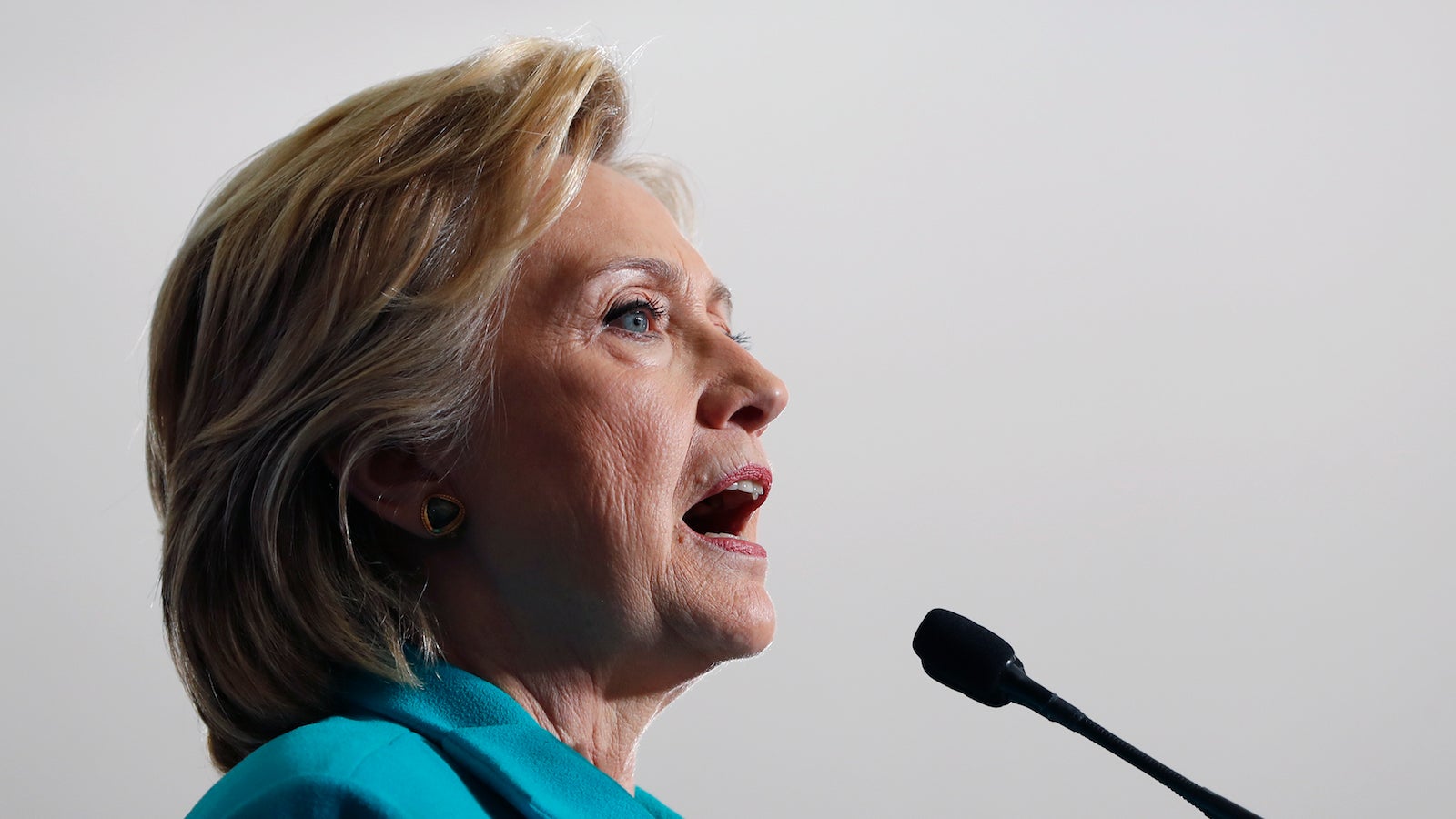Hillary Clinton sounds powerful when she speaks—and that’s exactly why some women won’t give her the vote
For the first time in history, American voters have the opportunity to vote for a female candidate as the major party nominee. But for Mormon voters who aren’t used to seeing women in positions of authority, Hillary Clinton may find herself a hard-sell. With polls showing a close race in Utah, which is a bastion of Mormon voters, the way Clinton presents herself could be a presidential tipping point.


For the first time in history, American voters have the opportunity to vote for a female candidate as the major party nominee. But for Mormon voters who aren’t used to seeing women in positions of authority, Hillary Clinton may find herself a hard-sell. With polls showing a close race in Utah, which is a bastion of Mormon voters, the way Clinton presents herself could be a presidential tipping point.
Since power and authority are prescripted to men both culturally and doctrinally in Mormonism, Hillary Clinton stands out as an anomaly. She doesn’t fit the mold of a nurturing, cookie-baking, mother-of-seven that many Mormons associate as a signifier of female power. She also doesn’t speak using the language of Mormon female power: a linguistic phenomenon identified by Mormon feminists as the “Primary Voice.”
The Primary Voice is a sing-song, ethereal tone often used by Mormon women in positions of authority. Named after the Primary Organization, which is a group largely run by women that was created to instruct Mormon children about Gospel principles, it is a tonal quirk unique to Mormon culture. Dr. Jessie Richards, an expert in sociolinguistics, describes it as “soothing, non-threatening, and full of easy-to-access examples and metaphors.”
Take a look at the below video for an idea of what this sounds like:
Compare this style to Clinton, who has been accused of using a voice that is shrill, loud, and monotone. Some have even said that Clinton talks like a man, and in Mormon culture, this is neither virtuous nor powerful.
Contrast the way Clinton speaks to the previous footage of the Primary Voice:
Clinton’s style has interesting implications when you consider how the Democratic nominee performs her gender. Having a woman in the highest position of power in the world might be confusing to some Mormons who are used to seeing women signal power softly and with nurturing tendencies. This is because Mormons simply aren’t used to seeing a woman assert her authority publicly like a man, and the few women who do achieve high leadership roles within the Church of Jesus Christ of Latter-day Saints (LDS) seem to disappear into their power; they publicly perform meekness, humility, submissiveness, and nurturing—qualities Hillary Clinton is not generally perceived as embodying.
Mormons aren’t used to seeing women in top leadership roles. Women cannot become priests, and there are over 300 male LDS general authorities to only nine women. Female administering is considered an auxiliary of the official priesthood, which means that at the end of the day, it’s the men who are making the final decisions on policies, theology, curriculum, and financial practices. The optics alone are stunning when you peek in on a General Conference (the LDS’s version of a national convention) and see LDS leaders in a sea of black power suits, dotted by a few pastel dresses.
Having the power to access God through the priesthood is a rite Mormon men are encouraged to seek. As LDS apostle David A. Bednar said recently in a speech directed at LDS males: “Worthiness and willingness—not experience, expertise, or education—are the qualifications for priesthood ordination.” (He forgot to mention that maleness is a qualification, too.)
Women, meanwhile, are encouraged to pursue soft power. For example, Mormon women are traditionally charged with being the nurturers of children, a source of cultural soft power. As a result, an entire culture and language of soft power has developed. One of the clearest creations of this culture is the rise of the Primary Voice.
“When it comes to asserting and showing “feminine” power, the currency for Mormon women is Primary Voice,” Richards says. “The expectation by members of the church is that Mormon women who are in positions of relative power will use this soft, kindergarten teacher’s voice. It is how you might talk to a child—a bit condescending, but with all the well-intentioned love one can show.”
But when it comes to the US presidency, we aren’t talking about soft power—we are talking nuclear-codes power. So how have LDS members responded to the idea of a strong woman in the Oval Office?
With 70% of LDS voters traditionally leaning politically conservative, you’d think Republican candidate Donald Trump would secure the Mormon vote—but you’d be wrong. If Clinton doesn’t represent a version of power that Mormon women want to see, Trump surely doesn’t represent the benevolent power Mormon men aspire to. He’s crude and unapologetic, and they’re not too big on that either. He’s offensive, unsympathetic towards refugees, and doesn’t practice the Mormon ideal of being a committed, loyal family man. Trump’s anti-Muslim rhetoric even reminds some Mormons of their own history of religious persecution. And yet, he is still beating Clinton in Utah.
So, faced with two terrible options, many Mormons are opting instead for third party candidates. It’s part of a long-standing tradition of Mormon women not seeing themselves in hard-power leadership roles.
Would Clinton do better to win votes by donning pastel suits and perfecting her primary voice? Maybe. Or perhaps she will pioneer a new language for Mormon women—one where claiming hard power becomes something strong and virtuous and women are able to be perceived as leaders in their own right.